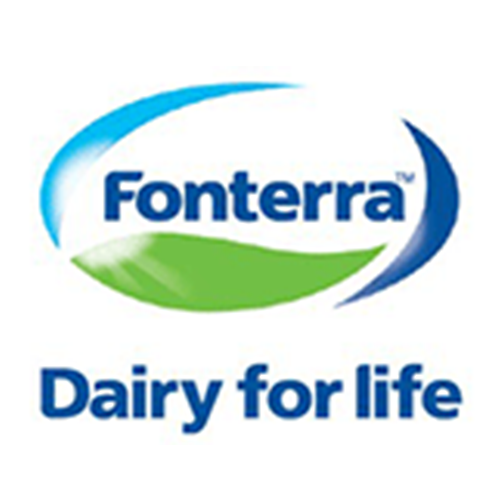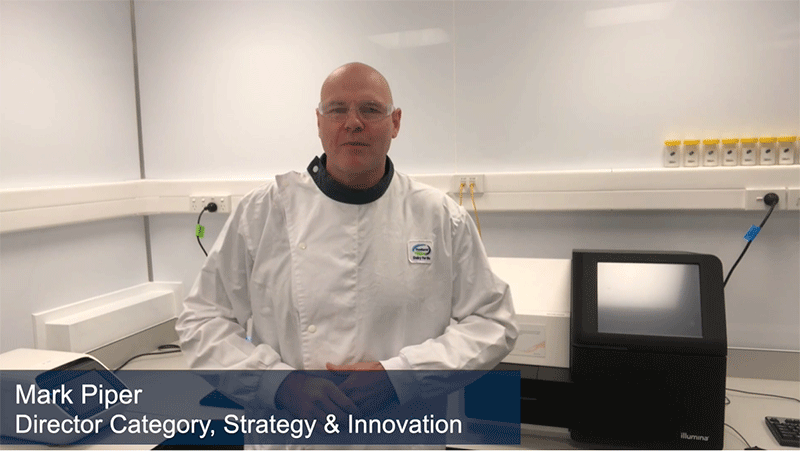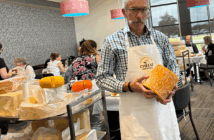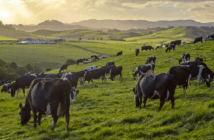
 By Fonterra’s Director for Category, Strategy & Innovation, Mark Piper
By Fonterra’s Director for Category, Strategy & Innovation, Mark Piper
It’s the million-dollar question for New Zealand’s largest industry: how can we stop cows from burping?
Although cows in New Zealand produce only a tiny fraction of global Greenhouse Gas – at less than 0.04% – solving this problem could reduce New Zealand’s carbon emissions by up to 20%.
Scientists all around the world are working on ideas to reduce the methane produced by livestock, and Fonterra’s at the forefront of that innovation in Aotearoa.
At Fonterra’s Palmerston North Research and Development Centre (FRDC), we’re looking at the potential of two exciting new solutions. The details of the research are kept very much under wraps, because we want New Zealand to lead the way on this, but without giving away too many secrets, we’re looking at natural ways to stop the cow producing methane in the first place.
Obviously, there are sensitivities here in terms of ensuring that we don’t change the cow’s natural biology and the milk it produces. That’s 100% natural and we want to keep it that way. And that’s where Fonterra’s one-hundred years of dairy fermentation expertise comes in.
We have one of the world’s largest dairy culture collections to call on. We’re using some of these cultures to create new fermentations we’re calling Kowbucha, which could potentially switch off the bad bugs that create the methane in cows. It’s early days but initial results with Kowbucha have been promising.
FRDC scientists are working with AgResearch and the Pastoral Greenhouse Gas Research Consortium to optimise Kowbucha to try to create a cost effective and practical solution to reduce methane.
Another innovation we’re working on is in partnership with Australian environmental company Sea Forest, to see if using seaweed in cows’ feed can reduce greenhouse gasses. The trial will use Asparagopsis, a seaweed grown naturally in Australia and New Zealand, as a supplement feed for Fonterra herds in Tasmania during the coming milk season.
In laboratory testing led by Australia’s national science research agency, CSIRO, the seaweed has shown the potential to reduce the emissions from cows by more than 80 per cent, so we’re keen to see if those test results can be replicated, safely, in dairy herds at scale.
As a co-operative owned by 10,000 farmers, we recognise reducing methane gases is an important priority and it’s exciting to see that innovations Fonterra’s been quietly working on are now starting to bear fruit. And while it’s still early in the testing phase (good science takes time), we’re proud to lead New Zealand’s own solutions to the on-farm methane problem.
Mark Piper is Fonterra’s Director for Category, Strategy & Innovation and has been with the Co-operative for more than 20 years in different parts of the business. He leads Fonterra’s Palmerston North-based Research and Development Centre (FRDC) – home to more than 350 researchers, engineers, nutritionists and scientists from 46 different countries, with more 4,500 years of combined dairy experience.































































































